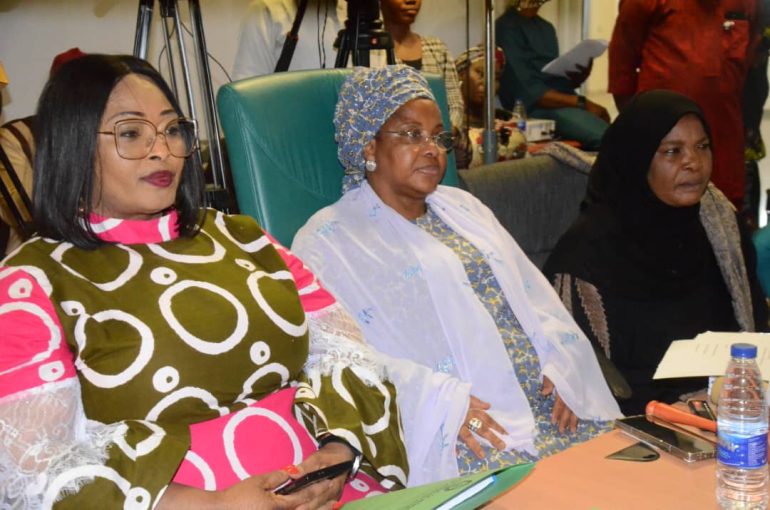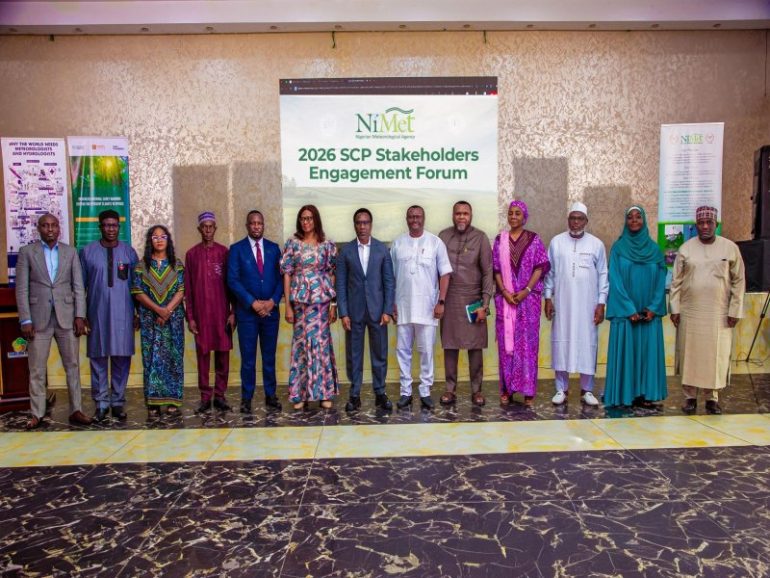Listeners:
Top listeners:
-
play_arrow
104.9FM Best rock music demo
-
play_arrow
Demo Radio Nr.1 For New Music And All The Hits!
-
play_arrow
Demo Radio Techno Top Music Radio
-
 play_arrow
play_arrow
Police Commissioner Launches Weapon and Riot Control Training for FCT Officers Democracy Radio
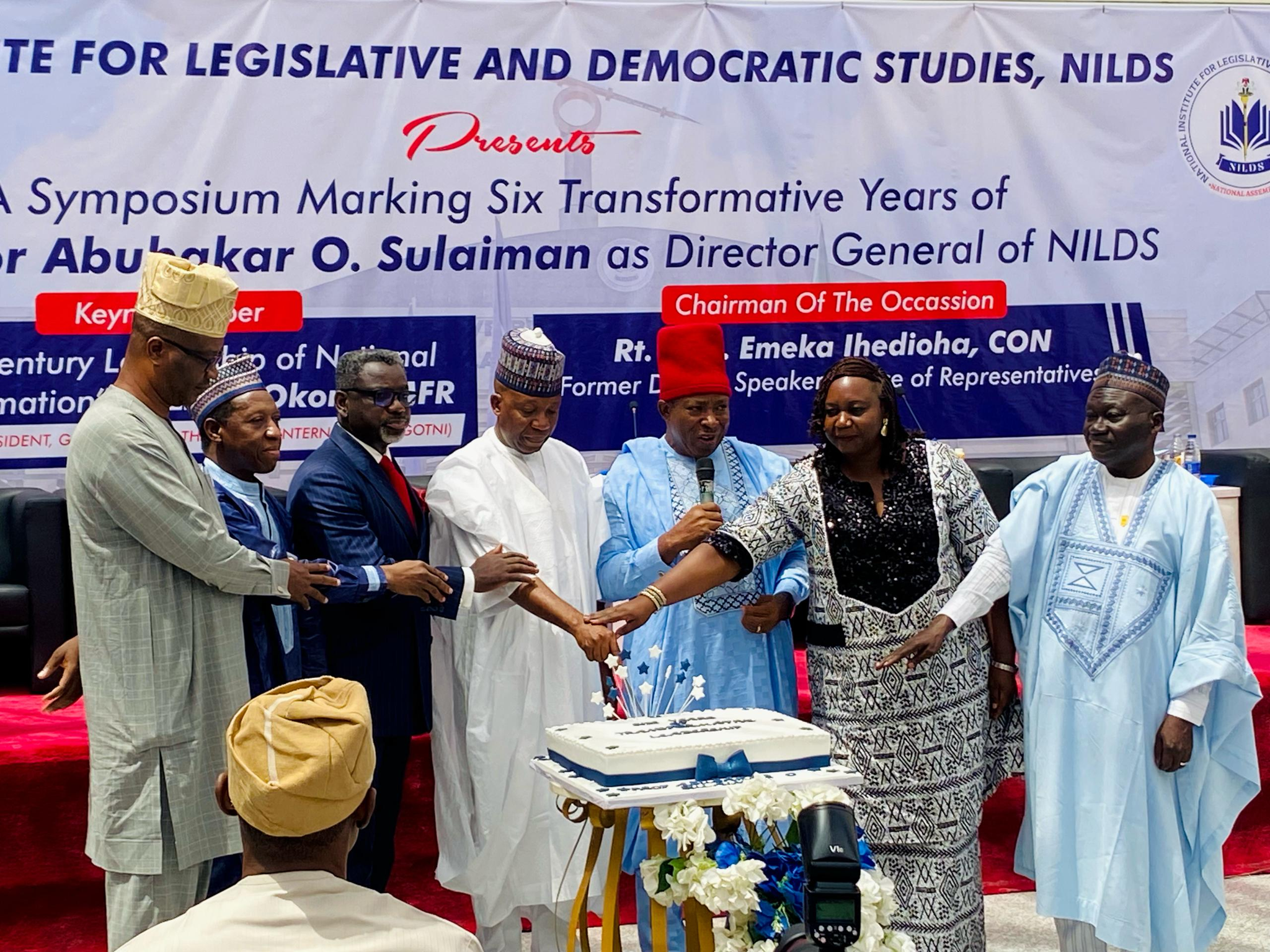
By Julian Osamoto
The intellectual tone of the event was further enriched by references to historic leadership models. A speaker cited British Admiral Lord Vincent’s tribute to Vice-Admiral Horatio Nelson: “There is but one Nelson,” praising his ability to inspire excellence among peers, an attribute mirrored in Prof. Sulaiman’s impact at NILDS. Photo Credit: Oluwakemi Kindness/Democracy Radio
In an atmosphere of reflection, vision, and resounding calls for national renewal, stakeholders from across sectors convened in Abuja, to mark the sixth anniversary of Professor Abubakar Olanrewaju Sulaiman’s leadership as Director-General of the National Institute for Legislative and Democratic Studies (NILDS).
The event, themed “Reflecting on the Six Years of Impact: A Symposium in Honour of Prof. Abubakar Sulaiman”, evolved into a passionate dialogue on the urgent need for transformational leadership to propel Nigeria into a new era of inclusive and sustainable development.
Organised by NILDS, the event brought together lawmakers, academics, civil society leaders, labour advocates, and students from across the country, offers a sobering examination of Nigeria’s developmental challenges and the role of ethical, visionary leadership in overcoming them.
Transformational Leadership prioritises people
Delivering the keynote address, Founder of the GOTNI Leadership Centre, Mr. Linus Okorie, underscored the concept of transformational leadership as one that prioritises people, purpose, and principles. “Nigeria has no shortage of resources or people, what we lack is leadership that rises beyond positional authority to purpose-driven impact.” he noted.
He challenged leaders across all sectors to abandon transactional mindsets in favour of value-based governance. “Let governance become less about power and more about purpose,” Okorie said.
“Nations change not because of policies, but because of the integrity and imagination of those who dare to lead differently. Prof. Sulaiman embodies these ideals, his legacy at NILDS proves that excellence and institutional transformation are possible.”
The call for deep systemic change was echoed by Mr. Adebowale Olorunmola, Country Representative of the Westminster Foundation for Democracy (WFD).
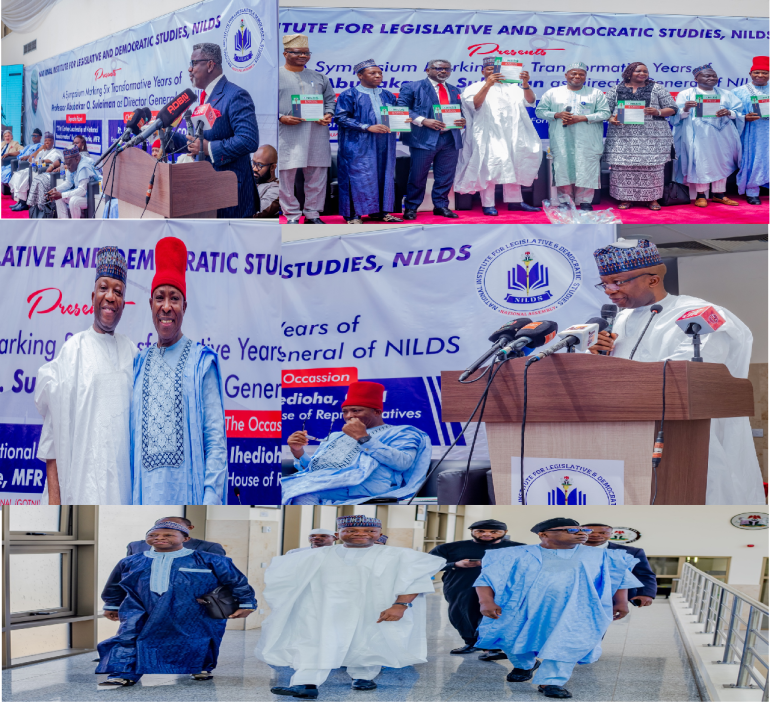
Reflecting on Nigeria’s recurring leadership failures, Olorunmola, warned that the nation would continue to lag behind its peers unless deliberate investments were made in grooming current and future leaders. “Leadership development must be seen as a long-term investment in the country’s future,” he stated.
Under his tenure
Representing Senate President Godswill Akpabio, Senator Victor Umeh paid tribute to Prof. Sulaiman’s leadership, describing him as a dogged reformer who has repositioned NILDS into a true citadel of democratic learning. “Under his tenure, this institute has become a beacon for capacity building, legislative excellence, and democratic deepening.” he noted
He highlighted the transformation of NILDS facilities, the professionalisation of lawmakers training, and the creation of platforms like Democracy Radio 104.9 FM, a station established under Sulaiman to foster democratic awareness at the grassroots.
Other achievements include the establishment of the Legislative Centre for Security Analysis, and the successful relocation of the institute to its permanent headquarters.
Call for intellectual solutions
Mr. Samson Itodo, Executive Director of Yiaga Africa, stressed the need for intellectual solutions to challenges like indiscriminate political defections, women’s exclusion from governance, and electoral inconsistencies.
“We must push for reforms to the Electoral Act, ensure gender inclusion, and advance a political culture that is anchored in principles,” he said, charging NILDS to lead these reforms from a knowledge-based perspective.
Democracy without dignity for worker
Labour leader and Director-General of the Michael Imoudu National Institute for Labour Studies (MINILS), Comrade Issa Aremu, brought workers’ rights into the conversation, asserting that national development cannot be achieved without placing the welfare of workers at the centre of policy and leadership. “Democracy without dignity for the workers is hollow, let transformational leadership reflect in how we treat our workforce.” he stressed
Prof. Sulaiman: A Legacy of Service and Reform
Responding to the tributes, Prof. Abubakar Sulaiman, expressed gratitude to the National Assembly for the opportunity to serve. He acknowledged challenges faced in his tenure including; attempts to cripple the institute, but affirmed that NILDS had remained resilient due to the support of the Assembly’s leadership.
“We have the capacity to mentor future leaders and to redirect this nation. What we need is the collective will of our people to support the vision,” he said.
He called on the leadership of the National Assembly to root out elements within the system who undermine the institute’s progress, describing NILDS as a national asset with untapped potential for driving legislative and democratic reforms.
Symbolic Moments and the Road Ahead
The symposium culminated in the inauguration of the NILDS Journal on Law Review and a celebratory cake-cutting ceremony in honour of Prof. Sulaiman’s achievements.
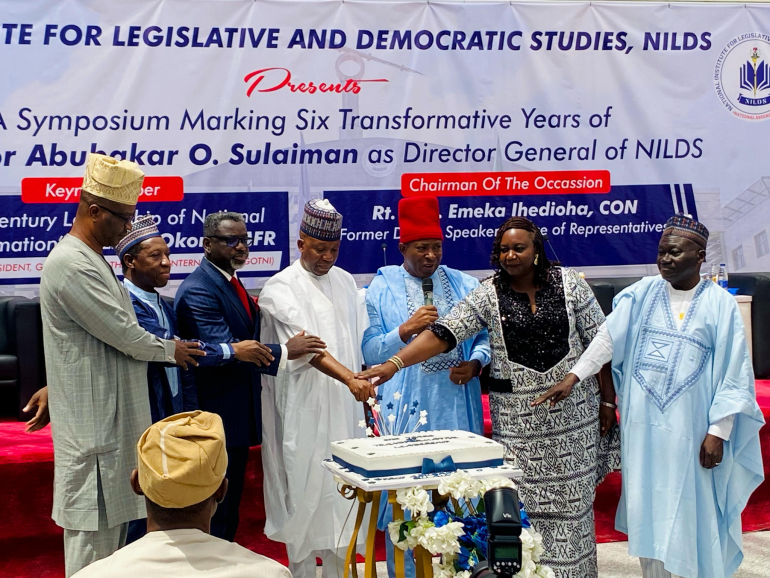
Yet the day’s most powerful takeaway was not celebratory, but served as a call to action: for Nigeria to break free from inertia, the country must commit to nurturing transformational leaders who lead with vision, not ego; integrity, not expediency.
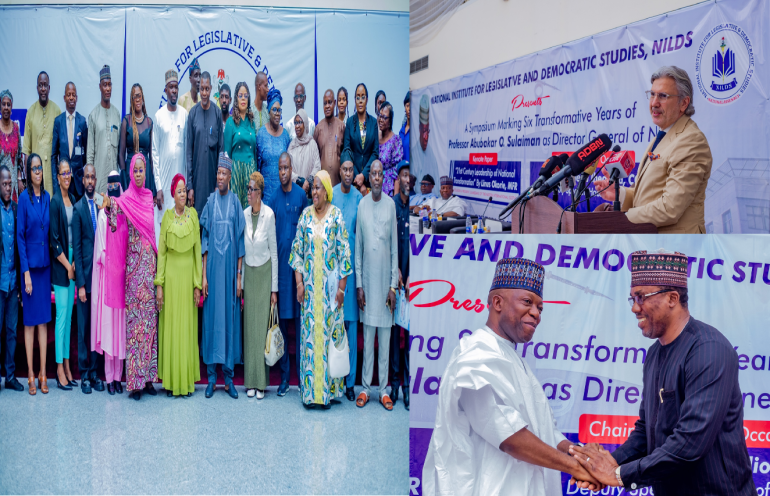
Written by: Julian Osamoto
#Abbas Tajudeen #DemocracyRadio #DG NILDS #National Assembly #Senate President Symposium Yiaga Africa
Similar posts
Copyright Democracy Radio -2024

